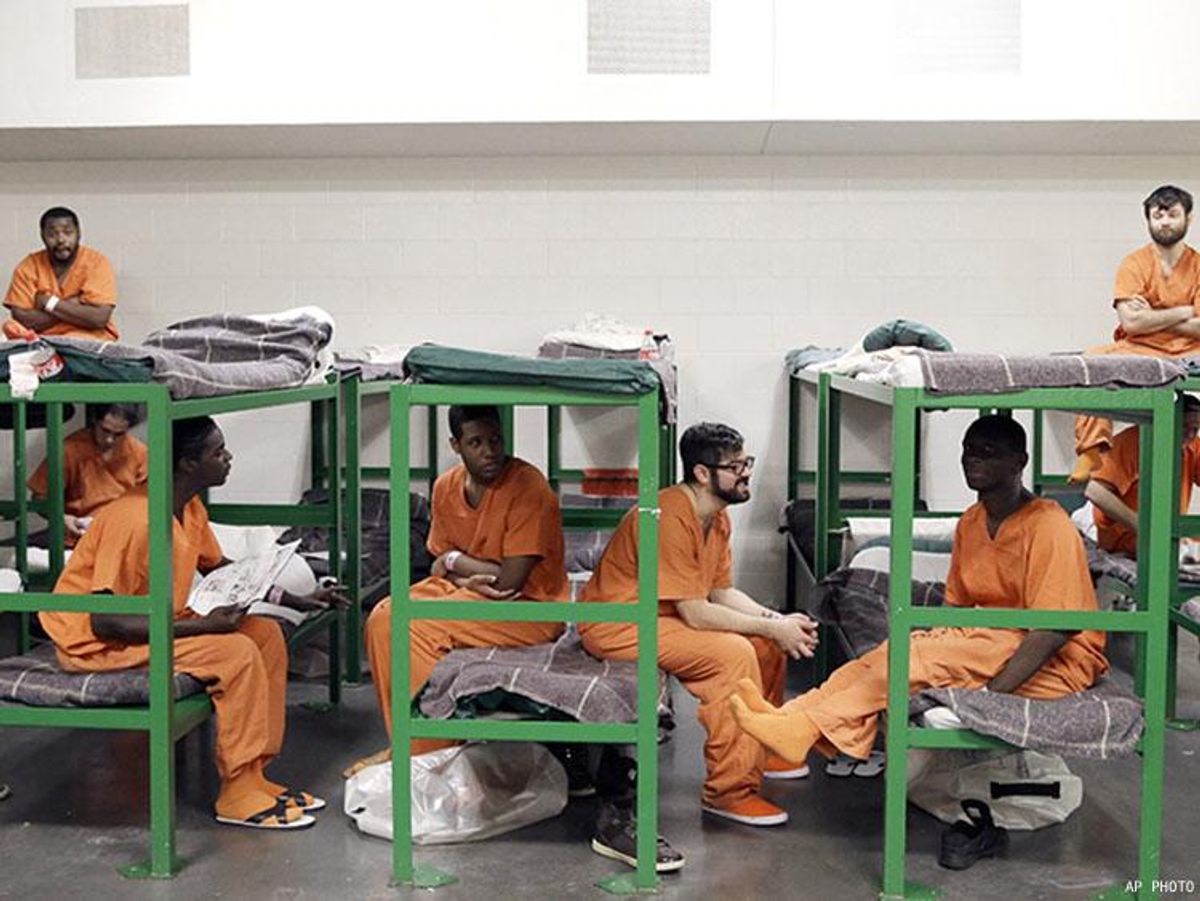Trangender prisoners in Texas who didn't start hormone therapy before being locked up can now undergo a process that will allow them to start the medically necessary treatment. Previously, only prisoners who were already taking hormones when they were incarcerated were given access to that medication.
"Offenders are prescribed hormone therapy only after going through a rigorous process that includes being reviewed by a gender dysphoria specialist, an endocrinologist, and having an affirmative diagnosis," Texas Department of Criminal Justice spokesman Jason Clark told the Associated Press. "Only then would it be considered medically necessary and require the minimum level of treatment which is hormone therapy."
The policy was updated in August after the American Psychiatric Association updated its manual of care to include "gender dysphoria." Ten prisoners have started hormone therapy since the policy was changed.
Demoya Gordon, an attorney at Lambda Legal, had concerns about the length of the process and stressed that authorities tend to disregard the health needs of transgender people.
When the policy was updated, 212 Texas prisoners identified as transgender. Only 21 were receiving hormone therapy.
"We're hearing from people that, for example, if they're not close to the point where they're going to try to perform surgery on themselves, or commit suicide or something like that, that their needs for treatment are not being taken seriously," Gordon said. "Texas seems to have, I don't know, some sort of vested interest in not being seen as respecting the constitutional rights of transgender people."
Transgender people are at a high risk of being sexually and physically abused in the prison systems. According to a 2015 report from the National Center for Transgender Equality, nearly one in six transgender people have been incarcerated; 47% of black transgender people have been locked up, which advocates say reflects America's racial bias in the criminal justice system.
"These high rates of incarceration are driven by pervasive discrimination, disproportionate poverty, homelessness, participation in street economies, and bias and abuse by law enforcement officers," according to the organization.


















































































Viral post saying Republicans 'have two daddies now' has MAGA hot and bothered